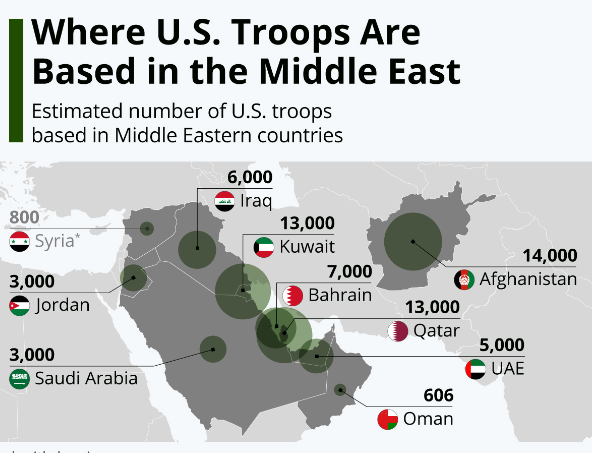
Middle East Sentiment Shifts Against U.S. Amid Gaza Conflict
In a striking shift of sentiment across the Middle East, a wave of anti-American sentiment has emerged in response to the ongoing conflict in Gaza. The region, historically complex and volatile, is now seeing a surge in protests, boycotts, and diplomatic criticisms directed towards the United States, which many blame for its perceived support of Israel in the conflict.
Media Outcry and Boycotts
The front page of a prominent Lebanese newspaper recently depicted President Biden’s image superimposed on pictures of Palestinian casualties, a stark representation of the widespread belief that the U.S. is complicit in what is being termed as “Western genocide.” This sentiment is echoed across various media outlets in the region, amplifying anti-American rhetoric.
In a tangible manifestation of this sentiment, U.S. brands like Starbucks and McDonald’s are facing boycotts in Egypt and several Persian Gulf states. These boycotts, driven by a grassroots campaign on social media platforms, are a direct response to the perceived U.S. role in the Gaza conflict.
Protests and Diplomatic Repercussions
Protests in Arab capitals, including Beirut and Tunis, have targeted U.S. diplomatic missions, with instances of flag burning symbolizing the depth of anger. The protests are fueled by the belief that U.S. support is pivotal in Israel’s military operations in Gaza.
U.S. Diplomacy Under Scrutiny
The U.S.’s diplomatic stance and public statements regarding the conflict have come under severe criticism. The administration’s approach is seen as favoring Israel, with President Biden’s statements and actions, such as deploying warships to the region, reinforcing this view.
Human Rights and Moral Standing
International human rights organizations have raised alarms about the disproportionate nature of Israel’s response in Gaza, with some warning of potential war crimes. This international critique has resonated strongly in the Middle East, where there is deep-rooted solidarity with the Palestinian cause.
Economic and Social Impact
The boycott movement against American brands has had notable economic impacts. Some businesses have resorted to displaying Palestinian and Egyptian flags and pledging donations to Gaza as a form of damage control. However, the effectiveness of these measures remains to be seen.
Youth and Social Media
The Arab world’s substantial youth population, empowered by social media, is playing a crucial role in spreading awareness and organizing actions such as boycotts and protests. This demographic is expressing solidarity with the Palestinian cause in various innovative ways, from fashion choices to digital activism.
Regional Diplomatic Shifts
The ongoing conflict has significant implications for regional diplomacy. Efforts toward normalization between Israel and certain Gulf states have been put on hold, and there is an increasing pivot towards alternative diplomatic partners, such as China, for conflict resolution discussions.
Conclusion
The unfolding events in the Middle East reflect a complex interplay of historical, political, and cultural factors. The U.S.’s role and its perception in the region are undergoing a critical reassessment, with implications for its future diplomatic and economic engagements. As the situation evolves, it remains to be seen how the U.S. will navigate these turbulent waters and what impact this will have on its standing in the international arena.


Average Rating